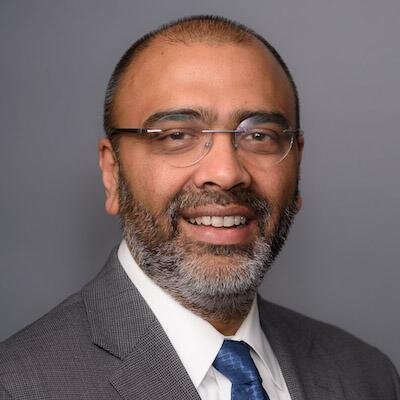Ruth Shuman joined the National Science Foundation in August 2009. She is currently serving as Program Director for the I-Corps Program. She was the former Program Director for the Biological Technologies (BT) topic area in the SBIR/STTR Program. Before coming to NSF, she was the founder, president, and CEO of a successful venture-backed life science company, Gentra Systems, Inc., that developed, manufactured, and sold products for genetic testing and research to clinical and research laboratories worldwide. Following Gentra’s acquisition, she held various consulting/advisory positions with start-up companies, and was CEO-In-Residence for Life Science with the University of Minnesota’s Venture Center evaluating the business potential of University-developed technology. Ruth began her career as a faculty member at North Carolina State University, and was a pioneer in the development of gene transfer and genetic engineering technology. Her area of technical focus at NSF is biological and biomedical technologies, and she has a keen interest in synthetic biology and metabolic engineering. She holds a Ph.D. from the University of Minnesota in the area of Genetics and Cell Biology.
Shirley Malcom
Shirley Malcom, PhD, is senior advisor to the CEO and Director of SEA Change at the American Association for the Advancement of Science (AAAS). In her more than 40-year tenure at the Association she has worked to improve the quality and increase access to education and careers in STEM as well as to enhance public science literacy. Dr. Malcom is a trustee of Caltech and regent of Morgan State University. She is a former member of the National Science Board, the policymaking body of the U.S. National Science Foundation, and served on President Clinton’s Committee of Advisors on Science and Technology. Dr. Malcom, a native of Birmingham, Alabama, received her PhD in ecology from the Pennsylvania State University, masters in zoology from UCLA, and bachelor’s with distinction in zoology from the University of Washington. In addition, she holds 17 honorary degrees.
Dr. Malcom is a former high school science teacher and university faculty member. She serves on the boards of the Heinz Endowments, Public Agenda, National Math-Science Initiative and Digital Promise Global. In 2003, Dr. Malcom received the Public Welfare Medal of the U.S. National Academy of Sciences, the highest award given by the Academy.
Stephanie J. Fertig
Ms. Stephanie J. Fertig is the HHS Small Business Program Lead in SEED (Small business Education and Entrepreneurial Development) at the National Institutes of Health (NIH). She currently oversees the Health and Human Services (HHS) Small Business Innovation Research (SBIR) and Small Business Technology Transfer (STTR) programs, which includes the NIH SBIR and STTR programs. The HHS SBIR and STTR programs are congressionally mandated set-aside programs that provide over $1.2 billion dollars per year to small business concerns. Prior to joining SEED, she managed the SBIR and STTR Programs at the National Institute of Neurological Disorders and Stroke (NINDS). During her over 15 years at NIH she has led the development and implementation of multiple programs focused on small businesses and translational research. Ms. Fertig has a Bachelor of Science degree in Chemistry with a major in Physics from the University of Virginia and a Master of Business Administration from the University of Maryland’s Robert H. Smith School of Business.
Sudip Parikh
Sudip Parikh, Ph.D., became the 19th chief executive officer of the American Association for the Advancement of Science (AAAS) and executive publisher of the Science family of journals in January 2020. Parikh has spent two decades at the nexus of science, policy, and business.
Immediately prior to joining AAAS, Parikh was senior vice president and managing director at DIA Global, a neutral, multidisciplinary organization bringing together regulators, industry, academia, patients, and other stakeholders interested in healthcare product development. He led strategy in the Americas and oversaw DIA programs that catalyzed progress globally toward novel regulatory frameworks for advanced therapies not amenable to existing regulations.
Prior to DIA, Sudip was general manager of the Health and Consumer Solutions business unit and vice president at Battelle, a multibillion-dollar research and development organization. He led a $150 million business unit with over 500 scientific, technical, and computing experts performing basic and applied research, developing medicines and healthcare devices, and creating advanced analytics and artificial intelligence applications to improve human health. Previously, Parikh led Battelle’s global AgriFood business unit. Headquartered in London and Geneva, this unit provided environmental fate research and agriculture product development services from laboratories throughout Europe and the United States.
From 2001 to 2009, Parikh served as science advisor and professional staff to the United States Senate Appropriations Committee, where he was responsible for negotiating budgets for the National Institutes of Health (NIH), Centers for Disease Control and Prevention, Agency for Healthcare Research and Quality, Biomedical Advanced Research and Development Authority, and other scientific and health agencies. A key legislative liaison to the research and development ecosystem, Parikh was on the frontlines of many science policy issues debated during that time, including embryonic stem cell research, cloning, disease surveillance, bioterrorism, cyber security, and doubling the NIH budget.
An active member of the scientific advocacy community, Parikh serves as a board member and officer for several impactful organizations, including Research!America, Friends of Cancer Research, and ACT for NIH. He has received multiple public service awards, including recognition from the American Association of Immunologists, the National AIDS Alliance, the Coalition for Health Services Research, and the Juvenile Diabetes Research Foundation.
Sudip is committed to early STEM education and, as a parent of three energetic young children, he prioritizes volunteering as a mentor for Science Olympiad teams at two elementary schools.
Early in his career, Parikh was a Presidential Management Intern at the NIH. He was awarded a National Science Foundation Graduate Research Fellowship while earning his Ph.D. in macromolecular structure and chemistry from the Scripps Research Institute in La Jolla, Calif. There, he used structural biology and biochemistry techniques to probe the mechanisms of DNA repair enzymes bound to DNA. The son of Indian immigrants who worked in the textile and furniture manufacturing plants of North Carolina, Parikh completed undergraduate studies at the University of North Carolina at Chapel Hill, first as a journalism major before switching into materials science.
Terik Tidwell
Terik leads VentureWell’s efforts in creating a cohesive body of equity-centered programmatic work by expanding and creating new programs, frameworks, and partnerships that center innovators and institutions which have been historically marginalized or excluded from science & technology entrepreneurship & innovation. He brings experience in inclusive tech-based economic development, having worked with foundations, corporations, and federal agencies. Terik holds degrees in Finance, Marketing, and IT from Monmouth University, as well as certificates in Venture Capital Finance and Enterprise Design Thinking.
Travis York
Travis T. York, Ph.D., is the Director of Inclusive STEMM Ecosystems for Equity & Diversity (ISEED) at the American Association for the Advancement of Science (AAAS). Dr. York’s research and work focus on catalyzing and sustaining systemic change and transformation to achieve inclusive and equitable access and progress through STEM pathways into the STEM workforce. Within AAAS, Dr. York provides leadership to a talented team who collaborate to create change in over 20 grant-funded projects and initiatives spanning all STEMM fields and the entire educational pathway including AAAS’s SEA Change Initiative, Science in the Classroom, ARISE Network, S-STEM Initiative, L’Oreal USA Women in Science Fellowships, and HBCU Making & Innovation Showcase.
Currently, Dr. York is a Co-PI on NSF INCLUDES Aspire Alliance - an effort to develop a more inclusive and diversified STEM faculty; and serves as a Co-PI on a U.S. Department of Education IES Assessment Grant titled, Affording Degree Completion: A Study of Completion Grants at Accessible Public Universities in collaboration with the Coalition of Urban Serving Universities and Temple University’s Hope Center for College, Community, & Justice. Dr. York has authored numerous peer-reviewed articles and book chapters, and his most recent article, Completion Grants: A multi-method examination of institutional practice, is available in the Journal of Student Financial Aid. Dr. York is active within several professional associations and serves on the editorial review board of the Journal of Diversity in Higher Education.
Dr. York, a native of Charleston, South Carolina, received his Ph.D. in Higher Education Administration from The Pennsylvania State University, masters in Higher Education and bachelors with distinction from Geneva College. Dr. York also studied at Oxford University’s Center for Medieval & Renaissance Studies through Keble College in 2003-04. Dr. York also supports AAAS’s Committee on Opportunities in Science, which advises the association on matters related to increasing the representation of women and minorities in science, engineering, and related fields.
Wanida Lewis
Dr. Wanida Lewis is the CEO and Co-Founder of Crescendo Foods, a culinary hub in Accra, Ghana. Dr. Lewis has over ten years experience leading programs, strategic partnerships and economic evaluation initiatives throughout the African continent. Previously, she was a Senior Economic Program Advisor in the U.S. Department of State's Office of Global Women's Issues and a Foreign Affairs Officer/AAAS Fellow in the Office of Agricultural Policy. In 2018, Dr. Lewis founded Young, Gifted, & Brown, LLC, a pipeline program supporting young Ghanaian women and entrepreneurs in STEM. In 2018, she was named by New America as one of thirty five "Black American National Security, and Foreign Policy Next Generation Leaders". In 2019, Young Professionals in Foreign Policy named her the "Gender Issues in Foreign Policy” Fellow. Dr. Wanida E. Lewis Food Science Fellowship Award Endowment was established in 2013 to provide fellowship funding for underrepresented graduate students in the Department of Food, Bioprocessing and Nutrition Sciences at North Carolina State University. She received a bachelor’s degree in Chemistry from Saint Augustine’s University, a master’s degree in Analytical Chemistry from North Carolina Central University and a doctoral degree in Food Science from North Carolina State University.







